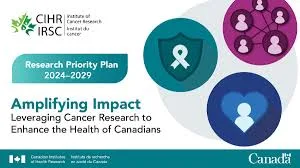New funding of $2.45 million to support the priorities of the Action Plan.
Ottawa – Sexually transmitted and blood-borne infections (STBBI) are largely preventable, treatable, and in many cases curable. However, rates of sexually transmitted infections in Canada have increased over the last decade—gonorrhea rates have doubled since 2012, and syphilis rates are five times what they were.
That is why today, the Honourable Mark Holland, Minister of Health, launched the Government of Canada’s sexually transmitted and blood-borne infections (STBBI) action plan 2024-2030 and announced $2.45 million in funding to address STBBI in Canada. Incorporating the input of multiple consultations with members of key populations, health care professionals and many others, the priorities of the Action Plan include:
- Improving access to STBBI testing for key populations including, First Nations, Inuit and Metis, 2SLGBTQI+, sex workers and people who use inhalation or injection drug-use equipment;
- Supporting harm reduction programs and services;
- Addressing STBBI-related stigma and discrimination.
The new $2.45 million in funding to support the priorities of the Action Plan, includes $1.45 million for community-based organizations to create and deliver their own targeted syphilis-specific resources and awareness-raising activities, as well as $1 million to the Canadian Institutes of Health Research (CIHR) to support syphilis research projects.
STBBI remain a significant public health concerns in Canada, as they can have sexual, reproductive and maternal-child health consequences, including genital and extragenital symptoms, pregnancy complications, cancer, infertility and psychosocial impacts. The Government also recognizes that STBBI do not affect all people equally because of differing social, economic and other factors. This is why Canada takes a whole-of-government approach and considers the underlying structural inequalities and determinants of health as part of its efforts to address STBBI.
“Everyone in Canada should have access to the sexual and reproductive health services they need, no matter who they are or where they live. Our Action Plan, developed in consultation with key populations, healthcare professionals, and the latest innovations in science will guide how the federal government will work to address and end STBBI as public health concerns.” – Mark Holland, Minister of Health








